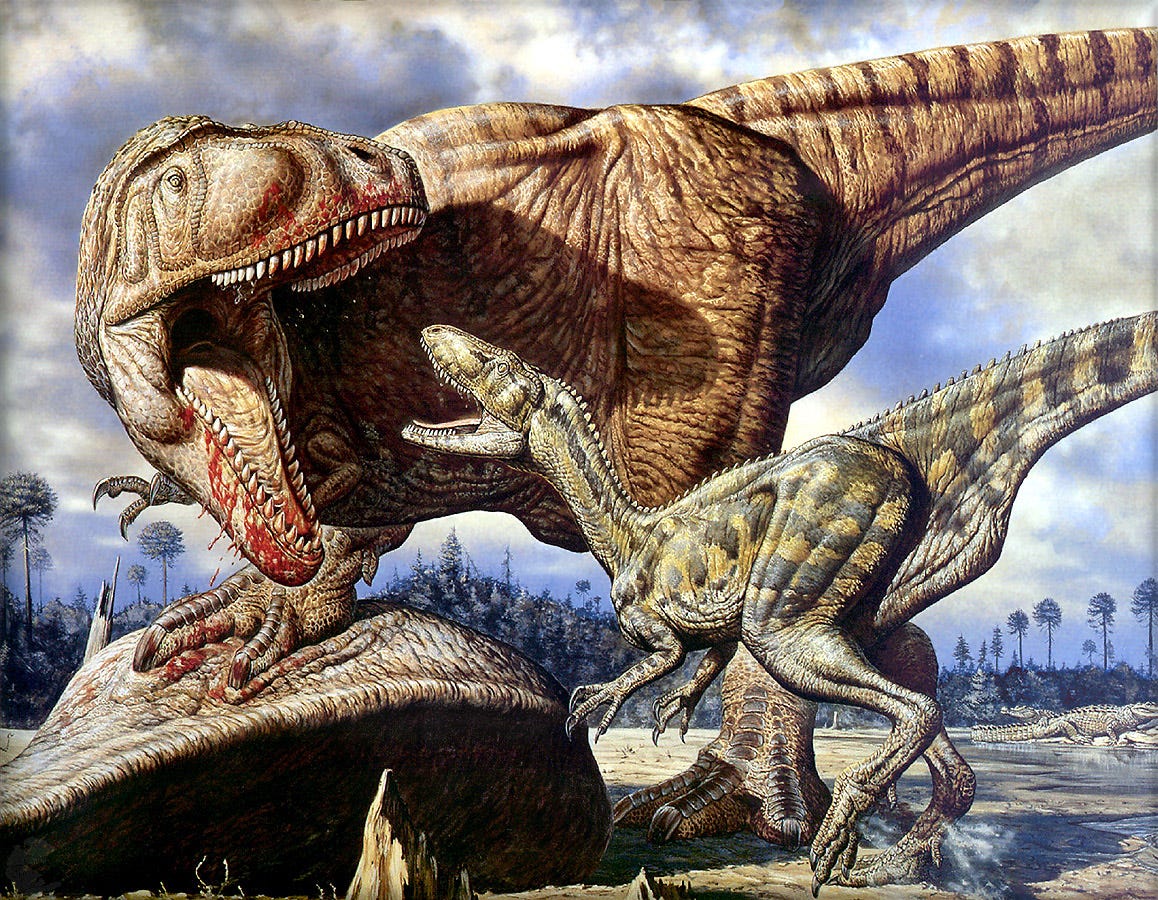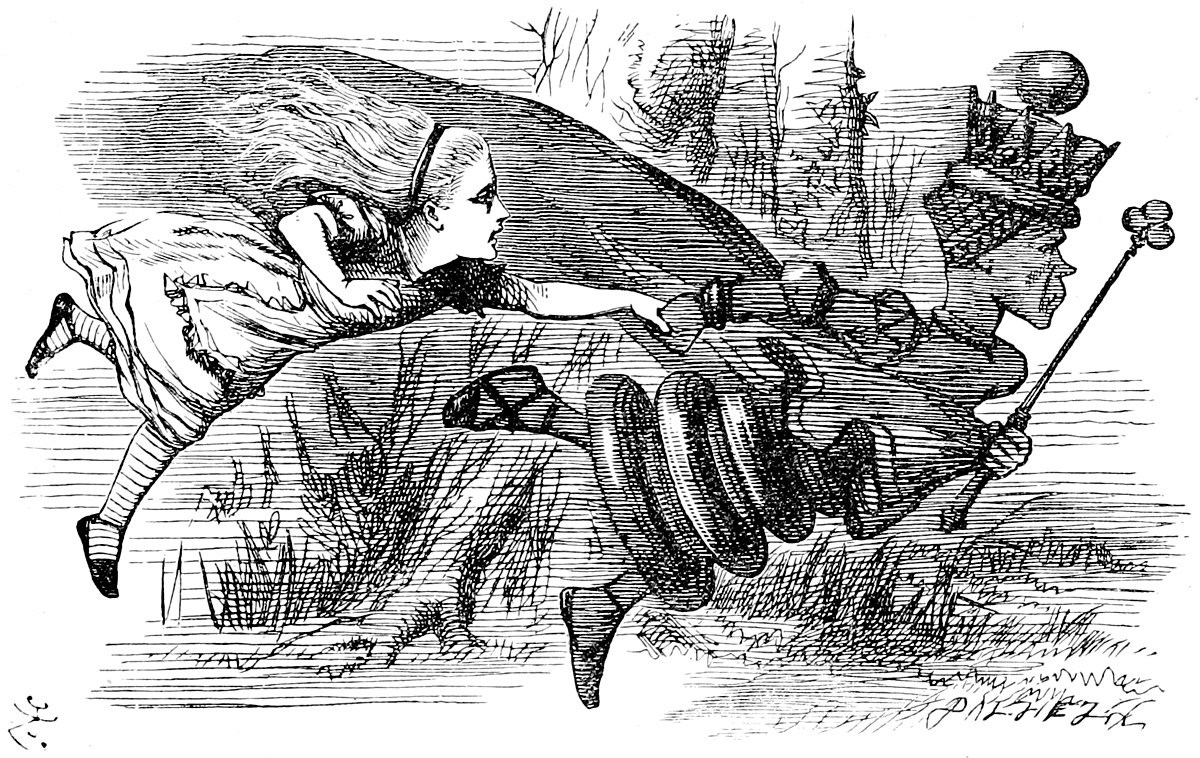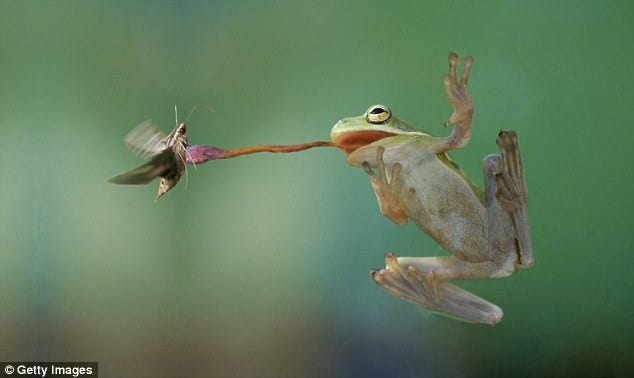EQ and the Red Queen Effect
Sticky frog tongues and slippery fly bodies can teach us a lot.
In our childhood science classes, we learned about dinosaurs.

Pictures of giant beasts looking like reptiles were depicted as the inhabitants of the Earth hundreds of millions of years ago.
Many teachers also used this story to introduce the concept of evolution. The idea that, over time, all creatures, including humans, change and adapt for survival.
What’s fascinating about the concept of evolution is the instinctual nature of how we understand its power.
Fight or flight. Eat or be eaten.
The emotions tied to these instincts is what we need to be tapped into. Our efforts to develop deeper emotional intelligence are the next evolutionary step in our development as a species.
One way to understand why this is so important is something called the Red Queen Effect.
What is the Red Queen Effect?
The Red Queen Effect is a mental model.
It is best understood through the eyes of Lewis Carroll and his novel Alice in Wonderland and its sequel Through the Looking Glass.

Alice is running as fast as she can with the Red Queen to keep up with wherever she is going.
Interestingly, she has noticed that although they are running, their surroundings (trees, bushes, etc.) are not changing. From the book:
‘Why, I do believe we’ve been under this tree the whole time! Everything’s just as it was!’
‘Of course it is,’ said the Queen, ‘what would you have it?’
‘Well, in our country,’ said Alice, still panting a little, ‘you’d generally get to somewhere else — if you ran very fast for a long time, as we’ve been doing.’
‘A slow sort of country!’ said the Queen. ‘Now, here, you see, it takes all the running you can do, to keep in the same place.
If you want to get somewhere else, you must run at least twice as fast as that!’
The parable is essentially explaining a sobering reality:
In order to keep up with what is happening in the world, we must continue to change. If we slow down or stop, we will fall behind.
We need to evolve at the same rate as the systems we interact with everyday. This is often referred to as working smarter, not harder.
Sticky Frog Tongues and Slippery Fly Bodies
Another simpler, ecological example of the Red Queen Effect is the evolution of frogs and flies.

In order for frogs to survive, they must have sticky tongues to catch flies. In order for flies to survive, they must develop slippery bodies or a foul taste to frogs.
The frogs with the stickier tongues survive at a higher rate than the frogs who don’t. As time goes on, the frogs who do have stickier tongues outnumber those who do not and end up procreating more (same with the more slippery flies).
As time goes on, the population of both species continues to evolve. The new generation of frogs, in order to continue to survive, must then evolve even stickier tongues to keep up…and the cycle continues.
Essentially, evolution always wins.
Adapt or die
The obvious question should start to appear:
What is the most effective adaption tool that we can use, as developers, to keep up with all the change around us?
The answer:
Continuously develop your emotional intelligence
Start with having a beginner’s mind and being self-aware of your emotions.
While it may be easier to say the world is wrong and sit back to see what happens, what you aren’t realizing is that you are falling behind and making it even harder to catch up.
One thing to try next week at work
Identify your ‘slippery fly’ and ask others how they have tried to ‘catch it’.
‘Slippery flies’ in our life are instances we get frustrated by, and would happily prefer to solve:
Engaging a demanding boss
Getting stuck by a new language or approach to a problem
Having a conversation with someone you have profound disagreements with
Try to reach out to a mentor or someone you admire and ask them how they evolved to handle these type of situations.
Good luck and thanks for subscribing to EQ for Devs. Most learning happens by doing.
Please share this and be sure to tell a friend!
- Fredric
